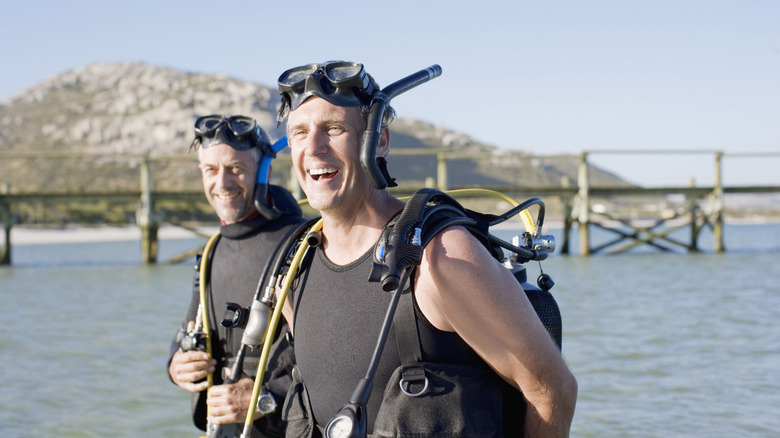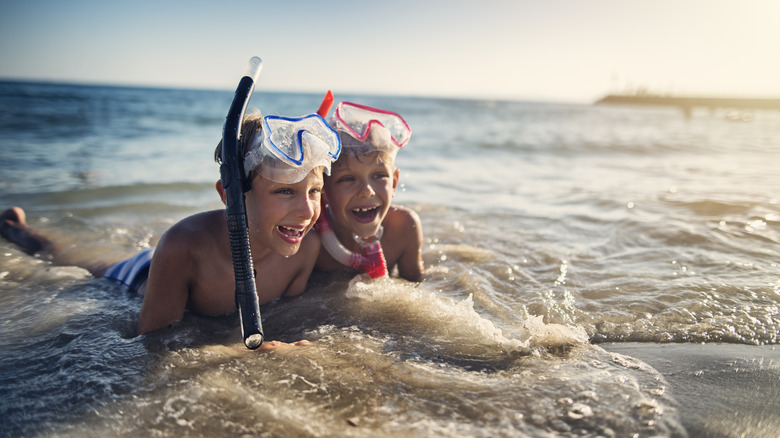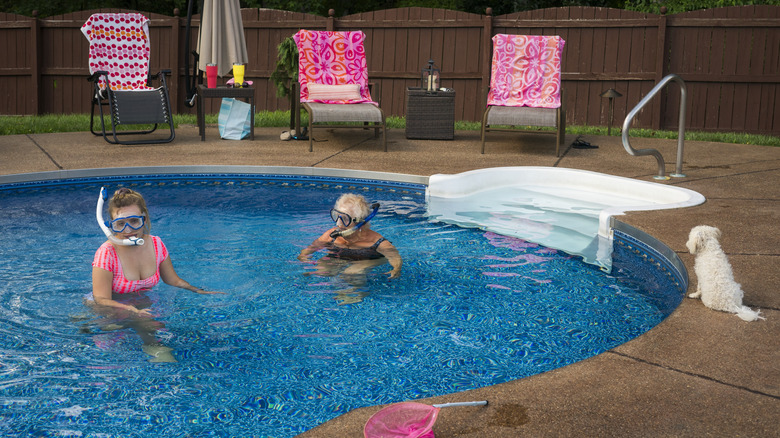The Common Location Beginners Should Never Have Their First Snorkeling Session From
Snorkeling is widely regarded as one of the most accessible water sports, requiring little more than a snorkel mask and snorkel to begin exploring the vibrant underwater world. Unlike deep sea diving, this recreational activity only involves submerging your head ever so slightly to enjoy observing the marine life. However, it's important to note that even though snorkeling can be done by just about anyone, including those who aren't really strong swimmers, certain safety precautions are essential.
One key precaution for first-time snorkelers is skipping out starting from a boat. Take it from Ben Stokes, the owner of snorkel tour agency Snorkel Venture, who shared in an exclusive interview with Islands that jumping off a boat into the sea is a rookie mistake that first-time snorkelers make. He explained that beginners often struggle with adjusting their gear and removing fogging from masks, and these issues can be resolved "through trial and error," ideally in shallow, calm waters. Mastering actual snorkeling techniques, of course, also requires comfort and familiarity with the surroundings rather than in the middle of an unpredictable sea or ocean.
"You want to be in the best possible place to figure it out and bobbing around in the open ocean, drifting from your boat is not ideal," Stokes said. "You want to be able to steady yourself, put your feet on the ground and make the adjustments to your equipment and then try again. Once your adjustments work in shallow water you can venture further out."
Shallow waters are your best friend
It's easy to get excited about the prospect of observing sea creatures or perhaps snorkeling around coral reefs, but if you are planning on making snorkeling more than just a one-off adventure, it would be in your best interest to go from the shore first. Baby steps aren't just for toddlers — they're for newbie snorkelers, too. And while even expert snorkelers still face drowning risks even in shallow waters, it remains the ideal place to learn and practice.
"If there are two options, enter from the shore first," Ben Stokes told Islands. "Once comfortable in shallow waters, you can venture deeper." And when you finally feel confident enough with your skills to level up from the shore, only then should you consider graduating to boat-based snorkeling. Once you do, just be sure not to get too mesmerized and drift far away from the boat.
"The most important factor when snorkeling from a boat is to keep an eye on the boat and make sure you can always return to it if needs be," Stokes advised. "It's easy to get distracted by what's happening underwater, don't rely on your boat captain to know where you are in the water."
There's no shame in practicing in swimming pools, either
Now, if your visits to the beach are rarer than you'd hoped, don't underestimate the value of your local swimming pool for snorkeling practice. Public pools, YMCA facilities, and even the humble portable pool you only whip out during the summer offer excellent venues for sharpening your snorkeling chops. The biggest perk? These pools are far less daunting than the open ocean, offering a current-free zone where you can focus purely on honing your technique. They're far safer to move around in as well, as you're basically in a controlled environment.
"Practice in a swimming pool first where there are no waves or current," Ben Stokes explained, noting that swimming pools also function as the perfect spot to get to grips with using your snorkeling gear. "Learn how to fit your mask without it leaking — wet your hair, fit the mask to your face and seal by pulling the strap back over your head. The strap should not be too low on the back of your head. Breathe gently through your nose to suck the mask onto your face and close any gaps!"


